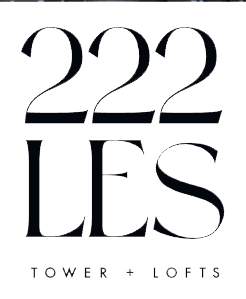Everything you need to know about using a guarantor in NYC

Photo by Cytonn Photography on Unsplash
After finally finding that perfect New York City apartment, it’s time to prove you can actually pay for it. Many NYC newbies and even natives can’t meet landlords’ strict criteria, like having a high credit score or a salary that equals 40 to 45 times the monthly rent, for example. This is where guarantors come in. A guarantor is a co-signer who guarantees payment on the lease if it otherwise can’t be made. But this is an entirely additional process, from finding someone who fits the bill to gathering all of the necessary paperwork. Ahead, find out everything you need to know about using a guarantor, as well as some tricks of the trade.
How do you know if you need a guarantor?
To know whether or not you need a guarantor, first understand what the landlord requires for tenants. If you do not meet their specific requirements, like if you don’t make enough money or have a bad credit score, a guarantor’s signature may be accepted. This makes them liable if you’re unable to make rent. Most landlords require renters to make 40 to 45 times the amount of monthly rent. For example, if you’re looking to rent a studio for $1,500 per month, expect to be required to earn about $60,000 to $75,000 annually. A good credit score may also be needed, which should be at least 700 out of 850. Find your credit score for free from places like annualcreditreport.com.
Who usually signs a lease as a guarantor?
Unfortunately, asking someone to be your guarantor is never easy. Usually, guarantors are family members or friends who feel comfortable enough signing a contract for you. If you plan on having roommates, it’s important to ask your landlord whether more than one guarantor will be accepted. If multiple guarantors are accepted, draw up a contract among the guarantors to determine the protocol if one of the roommates misses rent. If just one guarantor is accepted, they must be comfortable becoming financially liable for you and all of your roommates.
What requirements does a guarantor need to meet to qualify?
For New York City apartments, landlords usually only accept guarantors that live in the city or the surrounding Tri-state area so they can sign an original copy of the lease. If this isn’t the case, like for many students, low-income individuals, or international workers, you may need to use an institutional guarantor. Institutional guarantors are financial institutions willing to accept the financial liability of the rental contract in exchange for a fee. Usually, these institutions require lower incomes and credit scores to act as your guarantor.
While requirements may differ depending on the building, guarantors are often required to earn 80 to 100 times more than the monthly apartment for which you’re applying. Documents required to be submitted by your guarantor include the same that renters submit: two pay stubs, two bank statements, tax returns, and a letter of employment. If they are self-employed or own a business, a certified public accountant may provide a statement regarding their income.
Once guarantors sign-on, they become responsible for any missed rent, and the landlord doesn’t always have to tell them immediately if they stop receiving monthly checks.
How do I ask someone to be my guarantor?
Besides getting down on your hands and knees to beg, there are other ways to ask friends or relatives for their financial help. Explain how competitive the market is and that since most landlords have a large pool of applicants to choose from they employ extremely strict requirements. You can also offer to draw up a separate contract with the guarantor that says you’ll repay them on the off chance that you miss rent.
What if the person I ask to be my guarantor says no?
If the family member or friend denies your humble request, there are other ways to get that dream NYC abode. While forking over a large lump sum at once used to be the norm in the city, rent reform legislation signed into law by Gov. Andrew Cuomo in 2019 made it illegal for owners and management companies to accept multiple months of rent as a security deposit or substitute for a lack of credit or rental history. Tenants can only be asked to pay one month’s rent and one month’s security deposit.
As 6sqft previously reported, a start-up called TheGuarantors will act as your cosigner. Perfect for students or international workers, the platform partners with the Hanover Insurance Group to work with tenants who earn as little as 27 times the monthly rent and have a credit score as low as 630. The service costs anywhere between five and ten percent of the annual rent.
Another similar service, Insurent, provides renters an institutional guarantor that allows them to meet the landlord’s requirements easily. The fee for this service will be approximately 80 to 90 percent of a month’s rent, although specific fees differ depending on your credit and financial condition. The fee is per lease, not per person.
Editor’s note: The original version of this story was published on August 12, 2019, and has since been updated.
RELATED:




























